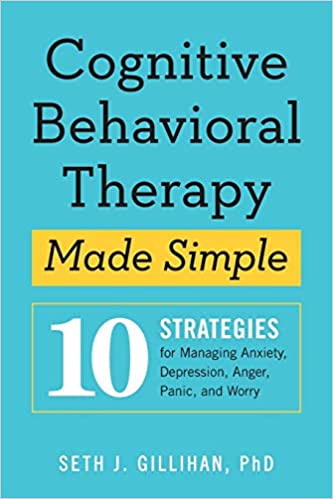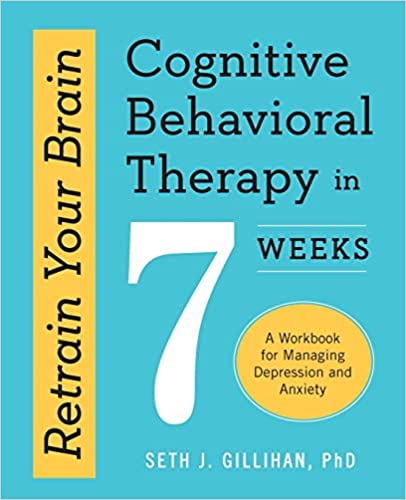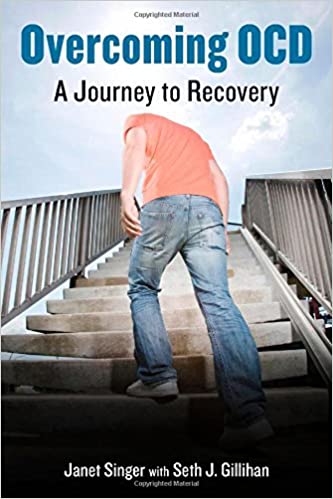Hi!
This week definitely feels lighter than last week but it’s definitely still not very light. Ugh, I hate being so negative but I also am just a realist. From the pandemic to the election and everything in between…I know I am not alone when I say I have a rollercoaster of emotions. I am trying to take each day one at a time. Moment by moment. That is easier said than done sometimes. So, I am also making sure to give myself patience, extra love and shine, because I know I am doing my best each day…each moment.
Below you will find an amazing article by Seth J. Gillihan, PhD who shares some amazing tips, tools and words of wisdom to help handle anxiety during this time of heavy uncertainty. Dr. Gillihan is a licensed psychologist, specializing in Cognitive Behavioral Therapy (CBT). Since summer 2012, he has been in independent private practice, delivering treatment in suburban Philadelphia (currently by video conference only). Visit his website for some amazing resources including an online course and podcast. I will also link his books at the end!
Take care of yourselves.
xo,
Whit
How to Find Peace in the Middle of the COVID-19 Storm
by Seth J. Gillihan
I’ll be honest—it’s hard to remember times I’ve felt more anxiety than over the past few weeks, and I treat anxiety for a living. If you’re even halfway paying attention to the coronavirus pandemic, there are many reasons to feel afraid. We’re facing a tremendous amount of uncertainty—as a nation, as communities, as families and as individuals. How many people will be infected and die? Will the healthcare system collapse? Will my loved ones or I contract the virus? When will our economy recover?
One particularly strong bout of anxiety came in the middle of a live meditation session I was hosting through YouTube. I was suddenly gripped by fear for my youngest brother, who works as a physician in Manhattan. What if he caught the virus while caring for his patient? What if he became really sick?
Extreme anxiety makes it hard to focus on anything else, including our dearest relationships. And of course right now we need to be “on” more than ever, as we adjust to working from home, homeschooling our kids, keeping the peace with family members, and managing all the changes that have come with social distancing.
When you’re feeling overwhelmed by stress and anxiety, look for simple and effective ways to quiet the nervous system. I’ve been relying more and more lately on the research-based practices of mindfulness-centered cognitive behavioral therapy (CBT)—the same techniques I share in my books, blogs, and online courses. These practices fall under three categories:
- Think (cognitive): changing thought patterns to shift your perspective and calm the nervous system
- Act (behavioral): choosing actions that lower stress and anxiety
- Be (mindfulness): being truly in the moment and opening to life just as it is
Try the following techniques—before your stress level is through the roof and your anxiety is turning into full-blown panic. They work best in combination with each other as a mind-body-spirit approach for finding your center.
THINK
- Don’t Mistake Fantasy for Reality
When my mind created that sad and terrifying story about my brother the doctor, it felt as though I were seeing into the future. But the truth is that it was simply a fear-based fantasy, nothing more. When you find your mind is scaring you with these kinds of stories, remind yourself that it’s not real—just the mind’s version of fake news. Take a nice slow breath in and out, smile, and come back to reality.
- See Yourself Coping
While our minds often fabricate things to fear, we can’t deny that bad things do happen. The news reminds us of this fact every hour. But fear goes beyond anxiety about bad things that could happen, and tells us we won’t be able to handle them when they do. It’s as though the event we fear will be “Game Over,” the end of our story. And yet you probably know from experience that difficulties aren’t the end. You find ways to handle life’s inevitable challenges.
So start to see yourself coping with whatever comes your way. Remember all the times you’ve exercised your strength and resolve to cope with hard times. Expect that you’ll bring the same skill and determination to any new problems you face.
- Set Your Sights
Anxiety about the current crisis can make us feel like victims of circumstance, as the virus spreads and the deaths mount and we watch and wait for what will unfold. Will this be the day we get sick? Will the curve finally start to flatten? What will the ultimate toll be?
Turn the tables. Every morning decide first thing what kind of day you will have:
- What quality of thoughts will you cultivate?
- How will you find joy?
- Who will you love?
You are the author of your days. Reclaim your agency.
ACT
- Move Through Anxiety
It’s easier for the grip of anxiety to tighten around you when you’re stationary. When you start to feel overwhelmed by the latest news about the virus or the mind’s fearful forecasts, do three minutes of physical movement. For example, walk up and down the stairs, go for a quick walk outside (if allowed), or simply stand and do gentle circles with your shoulders. Focus on the physical sensations as you move, letting body awareness anchor your attention in the present.
- Love Conquers Fear
Love and fear are opposing forces—as one grows, the other shrinks. When you’re feeling anxious and stressed out today, ask yourself, “How can I show love to someone else?” Look for opportunities to meet the needs of those around you, even in ways they aren’t expecting. It may take some creativity, given the limitations in what we can do right now. Focus on the act of loving, rather than waiting to feel loving, and see what happens. Let love be the antidote to fear.
- Release Tension
Stress and anxiety lead to physical tension that builds up in the body—knots in the shoulders, stomach tightness, an aching back. Pause several times today when you notice you’re holding onto unnecessary tension in your muscles. Take three calming breaths, exhaling for a count of five. Now inhale as you shrug your shoulders up toward your ears, then exhale slowly as you completely let go of the tension, allowing the shoulders to relax and drop. Repeat twice more, each time with a calming breath in and out. End with three more breaths, and notice how you feel.
BE
- Open to Uncertainty
It’s stressful to face so many unknowns about how this pandemic will affect our lives and our world. No one knows for sure when the infections will peak, how long we’ll be socially isolated, or what will happen with our finances. Trying to know in advance how these things are going to turn out only leads to worry and anxiety, and a false sense of responsibility that you need to figure them out.
Consider today as an opportunity to be open to—even embrace—the fundamental uncertainty woven into our existence. Fix your sights on what’s actually in your control, and let go of the rest. Let life do what it will.
- 3-Part Breathing
The breath is intimately connected to the nervous system, and breathing with attention can be one of the most effective ways to quiet the fight-or-flight response.
Sit comfortably and close your eyes. On your first inhale, align your posture. Straighten your back, lift your head, and pull back your shoulders. Exhale slowly.
On the second inhale, inflate your lower abdomen like a balloon, then exhale slowly again.
On the third inhale, feel your ribs expand outward as your lungs fill with air, and exhale slowly. Repeat this 3-part cycle for 1-5 minutes, and notice how you feel when you finish. Repeat several times throughout the day, even when you’re not feeling especially anxious.
- Can I Open to This?
Anxiety pushes us to resist reality—to close ourselves off and say no to what’s happening. When you’re confronted with something that triggers anxiety today, ask yourself, “Can I open to this? Am I willing to stay with my experience?” Peace is available when we summon the courage to face life exactly as it is.
An Unconditional Peace
Frightening current events paired with the isolation of social distancing can wear you down over time, leaving you feeling exhausted and dispirited. Use these practices to renew your spirits by stepping into a place of mindful presence—being truly in the moment, with an openness to all of what it means to be alive.
Perhaps the most powerful way to address anxiety is to recognize that everything will be okay—always—even when it isn’t. We can even find a sense of gratitude for our difficult experience, since we were never guaranteed an easy life. Being alive is about more than avoiding bad things and making sure we never experience loss. Beyond your fear and deeper than your dread, at your spiritual core, a peace abides that’s always waiting for you.
Some of these practices are adapted from The CBT Deck and the forthcoming sequel, The CBT Deck for Anxiety, Rumination, & Worry. If you’d like some easy daily practices to help manage anxiety, my e-guide “10 Ways to Manage Stress and Anxiety Every Day” is available for free when you sign up for my newsletter.
—










